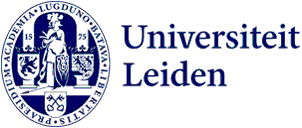Qualitative interviewing
Interviewing is a widely used method of data collection in the social sciences. However, doing qualitative interviews well is an art and a technique whose successful execution requires targeted training, practice and constant reflexivity. This course will introduce course participants to qualitative interviewing as a data collection/generation technique. We will cover different types of qualitative interviewing techniques, the selection of participants (sampling), access to participants, questionnaire design, data analysis (including different forms of coding), data management, and the ethics of interviewing. The course is meant for both those who are new to qualitative interviewing and those who already have some experience with it to review best practices and improve interview techniques.
- Target group
- PhD candidate
- Method
-
Training course
Course description
Interviewing is a widely used method of data collection in the social sciences. However, doing qualitative interviews well is an art and a technique whose successful execution requires targeted training, practice and constant reflexivity.
This course will introduce course participants to qualitative interviewing as a data collection/generation technique. We will cover different types of interviewing (e.g., elite interviews, semi-structured interviews, life histories, narrative interviews), selection of participants (sampling), access to participants, questionnaire design, data analysis (including different forms of coding), data management, and the ethics of interviewing.
During this course, participants will gain an in-depth understanding of the core interviewing techniques and will have the opportunity to practice and apply the skills learned.
After this course, participants will have obtained:
- Solid knowledge about the various qualitative interviewing techniques;
- Skills to reflect on the use of interview data in light of different research objectives;
- Knowledge on how to apply the techniques to various interview situations;
- A critical understanding of the ethical issues involved in interview research;
And the ability to critically assess the collection and use of interview data in published research.
The course is meant for both those who are new to qualitative interviewing and those who already have some experience with it to review best practices and improve interview techniques.
The first day of the course provides course participants with an overview of different types of interviewing. We will discuss and practice various techniques used for elite interviews, semi-structured and structured interviews, life histories, and narrative interviews, among others. On the second day, we will discuss how to plan and conduct interviews in light of the fieldwork context of participants, including data management and ethical issues. On the third day, we will focus on how to analyse the data collected from interviews.
Mode of instructions
Combination of short lectures, seminar discussion and short practical exercises, in class and outside class.
Reading list
A full reading list will be announced at least two weeks before the course start. Students will be informed about the list of works they need to read before the course two weeks before the start.
Entry requirement
This course is for PhD students, who have completed the proposal stage and will shortly set out to do fieldwork, or have begun fieldwork and want to reflect on their experience of interviewing. We expect PhD students to have advanced in their thesis process to the extent that they know where this fieldwork will take place and how it is related to their research question.
We also welcome research staff members who would like to reflect on and improve upon their interviewing techniques, or get to know a different techniques than they are used to.
Questions?
Contact Gisela Hirschmann at g.k.hirschmann@fsw.leidenuniv.nl
